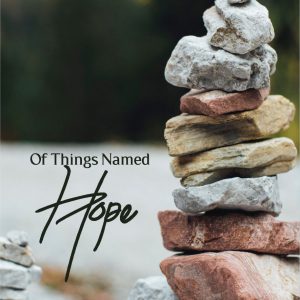Themanthology of Abiku by ACEworld
Poets often find inspiration from their society to create their poetic conceits and hope to share their unique vision or understanding of the world with the readers. However, sometimes, poets may become engaged in a project to explore a cultural material, such as myth or belief or practice, in an effort to reinterpret, influence existing conceptualization, deconstruct familiar acceptance and just recreate perception. This effort is important in enriching our understanding of our society and the peculiarities that define us. Do we argue that lack of understanding of our belief system, including myth, could consequentially impact on how we see ourselves and relate with the world? And as true as it may be, there is also a grave danger in blind acceptance or denial of what is part of a people due to limited understanding of such.
Abiku is a controversial subject. While, for convenience, one can say it is a myth because of some suggested absence of scientificity, it becomes poor judgement to make such hasty conclusion, especially because there are lived evidences of the regurgitatory nature of abiku. If evidences are sought in the spirit of empiricism, then look at the stories of mothers whose abiku children bear the imprints of previous lives. Abiku is more than a stillbirth or reincarnation. Abiku, from a Yoruba experienced belief, is a spirit being that takes delight in coming as a child and dying in its early years. Such cycle is repeated continuously till the mother tires out or the child is shamed to stay.
In Themanthology of Abiku, poets have decided to share their insights on what abiku is. This laudable engagement with the subject matter enriches the readers’ understanding of how abiku is perceived and understood within the host culture.
Significantly, while the poets are pulled from various sociocultural spaces and experiences, there seems to be a consensus that abiku represents pain, torture, mockery of human efforts, and wasted resources. Through varied styles and techniques, the poets explored the concept of abiku. Some entreated this irreverent entity to heed human pleas and not subject humans to repeated sorrows; some decided to mock abiku and shame it to stay or never return. Names given to abiku run through the poems, giving the readers the opportunity to share in the lived misfortune of
abiku’s pranks.
However, there are some poets that have chosen to dig deeper in order to extend the discussion on abiku. One of such poets is Agbaakin O. Jeremiah. His treatment of abiku focused on spiritual, biological, medical and social. Through a masterful use of satire, Agbaakin quizzed the overreliance on the mythical nature of abiku. He suggested that medical reasons could be a factor, as Samuel Ayoade and Sarah Ojo also explored the element of sickle cell. Agbaakin argued in his poem that abiku shows the insensitivity of the gods to whom prayers are offered, a position shared by Osoba Taiwo Peter. This same argument about the futility of sacrifices, prayers and human science was echoed in Wole Soyinka’s “Abiku”.
This project is not all about espousing a Yoruba belief. There is also an effort to metaphorize abiku in a sociopolitical context. “A Dance for the President” is an extended metaphor for the repeated failure of the government to fix simple problems, like electricity. Oluokun Salman Abiodun’s reference to “NEPA” shows the predictable erratic nature of Nigeria’s infrastructure. Just like it is certain that an abiku child will die as its nature is, the poet argues that Nigeria’s crises remain “abikuish”.
In this collection, the reader is given a rare opportunity to enjoy a masterful treatment of a singular theme, abiku. The reader is invited to share the worlds of different poets, the worlds unified by the ambition of enriching the understanding of a theme and nudging the reader to form a more comprehensive appreciation of cultural artifacts. While the roll call of the poets includes seasoned and budding poets, the commitment to poetic richness by all should be applauded. We remain indebted to these poets and their crafts.
I invite the readers to begin a journey that may lead to more questions and personal reflections; and possibly, a challenge of the status quo.
Thank you.





